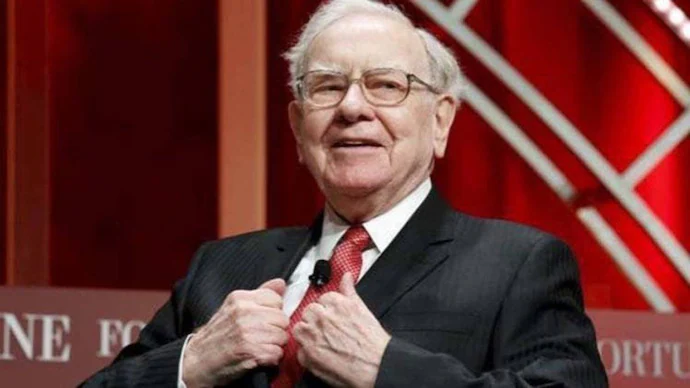In a surprise announcement that marks the end of an era, legendary investor Warren Buffett revealed he will step down as CEO of Berkshire Hathaway by the end of 2025. Buffett, 94, made the declaration at the company’s annual shareholder meeting in Omaha, Nebraska — a move that even caught most of the board members off guard.
The announcement has sparked a wave of tributes from the business world’s top figures. JPMorgan CEO Jamie Dimon lauded Buffett, calling him a symbol of all that is right with American capitalism. “Warren represents everything that is good about American capitalism and America itself — investing in the growth of our nation and its businesses with integrity, optimism, and common sense,” Dimon said.
Apple CEO Tim Cook, whose company is the largest holding in Berkshire’s portfolio despite recent sell-offs, echoed similar sentiments. “There’s never been someone like Warren,” Cook wrote on X. “It’s been one of the great privileges of my life to know him. And there’s no question that Warren is leaving Berkshire in great hands with Greg.”

Greg Abel: The Chosen Successor
Buffett named Greg Abel, 62, as his successor — a move that had been long anticipated since the late Charlie Munger casually revealed it at a 2021 shareholder meeting. Abel, currently vice chairman of non-insurance operations, has been an integral part of the Berkshire empire since 1992 when he joined MidAmerican Energy, later renamed Berkshire Hathaway Energy.
Abel has gradually taken on more responsibilities, including capital allocation, and has won the confidence of shareholders. “Greg is ready. I have no doubt about that,” said longtime board member Ron Olson. “We’ve known it for a long time.”
Abel also confirmed during the meeting that Berkshire intends to hold on to its investments in five Japanese conglomerates for decades, showcasing his long-term vision that aligns with Buffett’s.
Buffett’s Final Legacy
Buffett, who took over Berkshire Hathaway in 1965, transformed it from a struggling textile company into a $1.16 trillion conglomerate spanning insurance, railroads, retail, utilities, and food services. Known as the “Oracle of Omaha,” Buffett gained global admiration for his investing acumen, modest lifestyle, and philanthropic efforts. Despite amassing a personal fortune exceeding $168 billion, Buffett still lives in the same house he bought for $31,500 in 1958.
His legacy is not just about wealth, but also wisdom. As he stated, “The decision to keep every share is an economic decision because I think the prospects of Berkshire will be better under Greg’s management than mine.”
Buffett plans to remain involved in the company and has no intention of selling his shares, which are pledged to philanthropy posthumously. His son Howard Buffett, 70, is expected to take over as non-executive chairman to ensure the firm’s culture and principles remain intact.
Reaction from the Business World
Reactions poured in from across the globe. CFRA analyst Cathy Seifert noted that the transition was likely a very tough decision for Buffett but praised him for exiting on his terms. Christopher Rossbach of J Stern & Co, a Berkshire investor, was visibly emotional, noting the gravity of the moment.
Cole Smead, CEO of Smead Capital Management, summarized the sentiment well: “It’s the end of an era. It’s sad, but it’s life.”
Despite the emotional farewell, Abel expressed confidence in the future: “I couldn’t be more humbled and honored to be part of Berkshire as we go forth.”
What’s Next for Berkshire Hathaway?
Abel inherits both an opportunity and a challenge: managing over 189 operating businesses, $264 billion in stock holdings, and a massive $347.7 billion cash pile. Key questions remain — will Berkshire continue to avoid dividends, will Abel maintain Buffett’s investing philosophy, and can he match Buffett’s cult-like following?
While Buffett and Munger’s era ends, the next chapter begins under Greg Abel’s stewardship — a chapter already watched closely by investors, economists, and fans of capitalism.
External Source:
Warren Buffett criticizes President Trump’s tariffs | Fox Business

